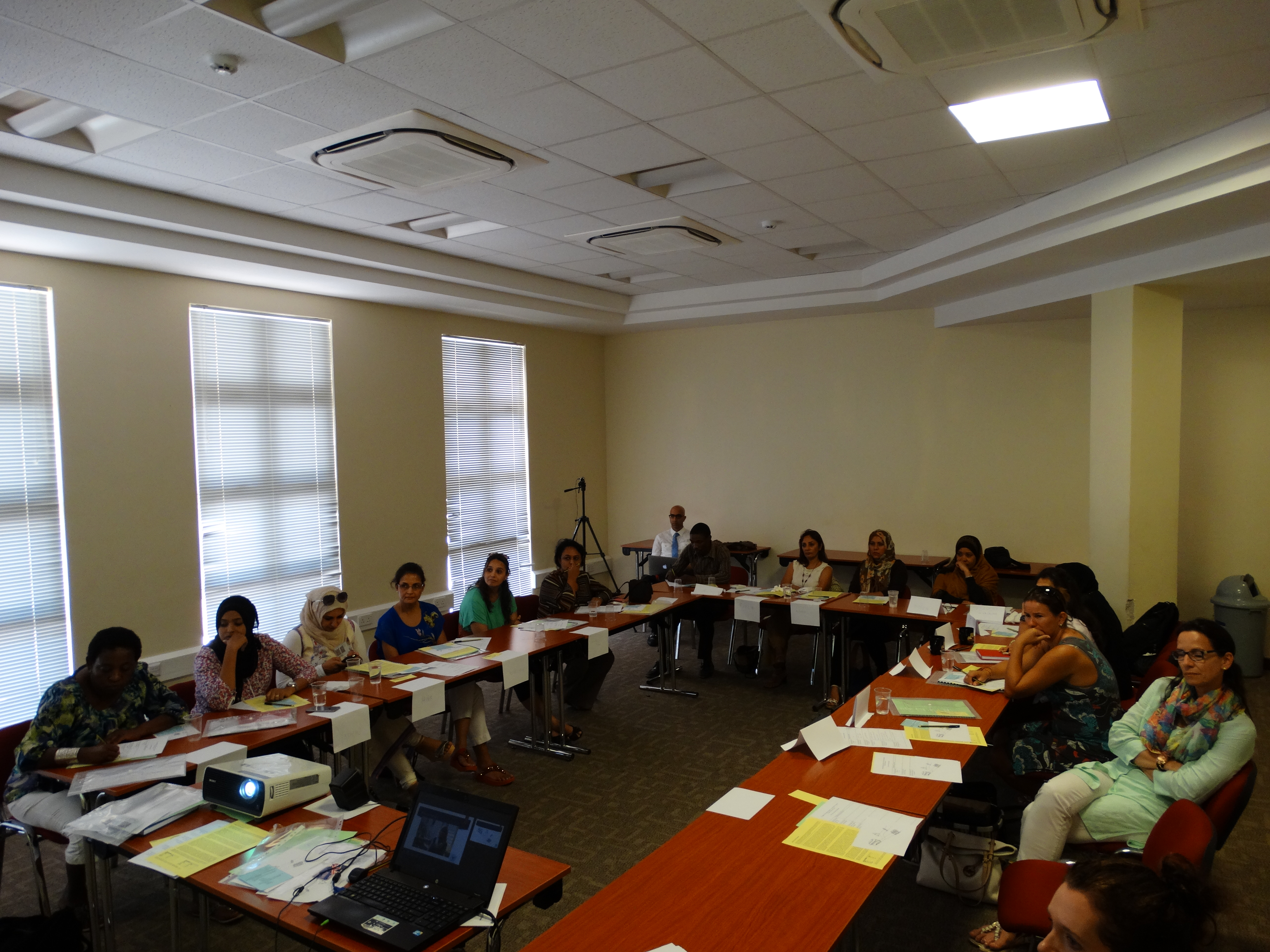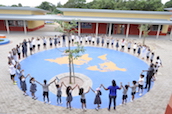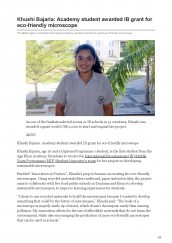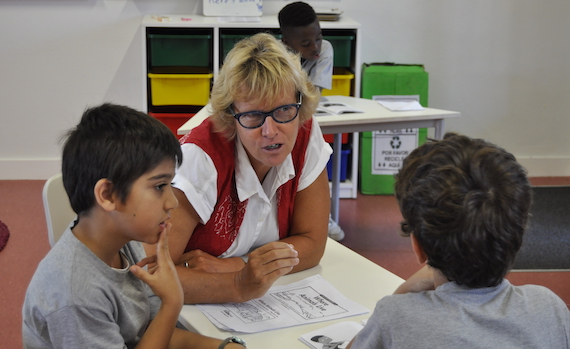AKDN features Khushi Bajaria, a first year student in the Diploma Programme at AKA Mombasa, who was awarded a grant by the IB for her eco-friendly microscope.
Happy New Year from the Aga Khan Academies
Dear friends of the Aga Khan Academies,
Happy New Year to you and your families from all of us at the Aga Khan Academies.
As we look toward 2018, I’m pleased to share with you some of the exciting developments that the Academies are anticipating for the coming year.
Across the Aga Khan Development Network, we will be continuing to celebrate the Diamond Jubilee of His Highness the Aga Khan, marking 60 years of his enlightened leadership as the Imam of the Ismaili Muslims and founder of the AKDN. The Jubilee commemorations began on 11 July 2017 and will continue until July 2018. The Aga Khan Academies have been running two social media initiatives in honour of the Diamond Jubilee – Academies ‘Journeys’ and ‘60 Stories for 60 Years’ – and these will continue through this July. I hope you are enjoying them.
The Jubilee year marks a time of increasing expansion of the Aga Khan Academies. Construction of the full campus for our third Academy in Maputo, Mozambique has proceeded rapidly, and our students and staff are looking forward to the opening of the beautiful new school buildings that will house students from grades 3–7 in the very near future. The Academy in Maputo also expanded their curricular offering this academic year, having introduced the International Baccalaureate (IB) Middle Years Programme, which has been received very well by our students and teachers.I’m also very pleased to share that our fourth Aga Khan Academy in Dhaka, Bangladesh will begin construction in 2018. The design for the forthcoming Academy won the award for best ‘Future Education’ project at the World Architecture Festival 2017. We’re looking forward to seeing the vision behind the award-winning design come to life, to provide talented students from Bangladesh and the region with a world-class education, regardless of their socioeconomic background.
In 2018 we will also be celebrating 15 years of the Aga Khan Academies network, with our first Academy in Mombasa, Kenya having opened in 2003. During the past 15 years, the Academies have pioneered innovative approaches in a multitude of areas, including the cross-curricular Aga Khan Strands, approaches to leadership development and service learning, campus design for a well-rounded education, talent identification, and developing local teachers into IB practitioners, amongst others. As our network grows, we are continuing to see the power of becoming a global, closely integrated and pluralistic learning community that allows sharing of ideas, expertise and thinking across varied contexts and cultures.
We greatly value your support for the Aga Khan Academies and our collective effort towards creating a better future through education.
Wishing you and your families the very best for 2018.
Warm regards,
Salim A.L. Bhatia
Director of Academies
In the Press
The following articles can be found in the press:
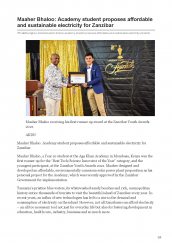
Year 10 student Maaher Bhaloo featured on AKDN website for proposing affordable and sustainable electricity for Zanzibar.
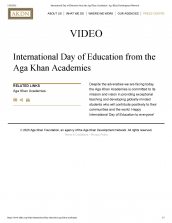
The Aga Khan Academies is featured in the Aga Khan Development Network for International Day of Education.
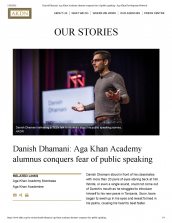
The Aga Khan Development Network features Danish Dhamani, Class of 2013, and his journey to becoming listed in Forbes magazine's 30 Under 30 list for a public speaking app he co-founded.
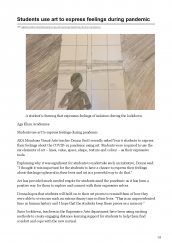
AKDN website highlights how Junior School students at AKA Mombasa have been using art to express their feelings amid the pandemic.
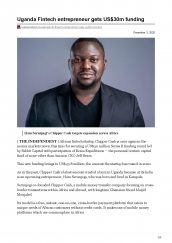
Uganda's newsmagazine, The Independent, features AKA Mombasa alumnus, Ham Serunguji after receiving $USD30 million in funding for his fintech startup, Chipper Cash.
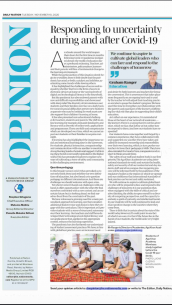
The Director of the Aga Khan Academies, Graham Ranger pens an article for the Nation about how the Academies have been responding to the COVID-19 pandemic.

AKA Mombasa student, Alyssa Jamal and alumni, Ziyaan Virji are featured in The Ismaili TV in an interview about their initiatives, AICP and AASW respectively, in honour of International Day of the Girl Child.
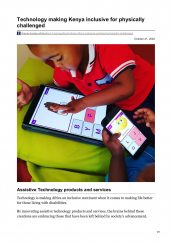
Academy student Raphael Mwachiti's innovative technology to help visually impaired people is referenced in The Exchange in article about how technology is making Kenya inclusive for the physically challenged.

OpenApply spotlights the Aga Khan Academy Mombasa in their September 2020 issue.
Pages
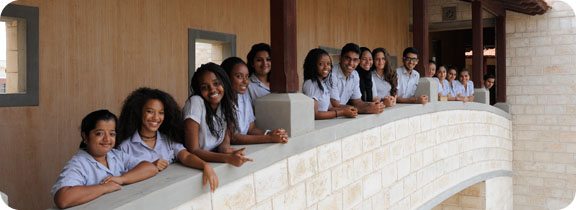
Bridging Global and Local
The Aga Khan Academies provide a globally relevant education, notably through the Aga Khan Curricular Strands (AK Strands), co-curricular offerings and student life. Students are exposed to global themes that emerge from the local context within which students live and learn.
The curriculum is based on the International Baccalaureate (IB) programme, and the overall Academies educational programme is aimed at developing students with strong leadership potential.
The AK Strands focus on globally applicable concepts such as pluralism and global economics. Students are also instructed in English and a local language in all Academies.
Academy students will be expected to spend time on another Academy campus during their secondary school years, thus providing them an immersion experience in a different culture.
The shared IB curriculum enables student and teacher exchanges between Academies.
"A great school, will educate its students not merely to be personally successful but also to use their gifts to build their communities and enhance the common good to levels beyond our dreams."
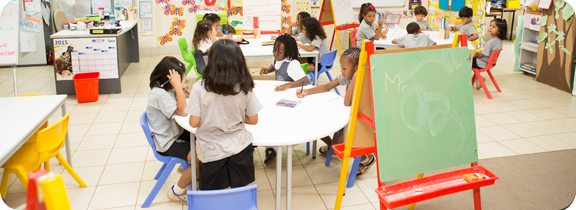
Publications
Please follow the link below to view publications from the Aga Khan Academies.
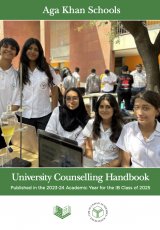
Aga Khan Schools University Counselling Handbook 2023-2024
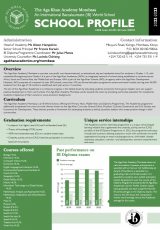
AKA Mombasa IB School Profile 2022-2023
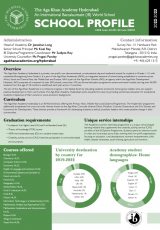
AKA Hyderabad IB School Profile 2022-2023
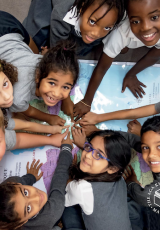
The Aga Khan Academy Maputo
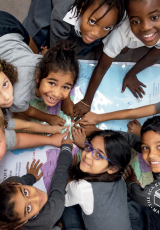
The Aga Khan Academy Maputo
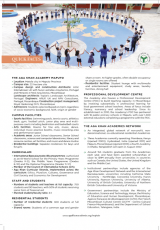
AKA Maputo Quick Facts Sheet (ENG and PT)

Aga Khan Schools Annual Publication 2021
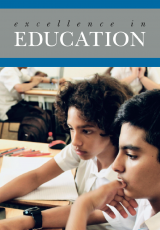
The Aga Khan Academy Dhaka
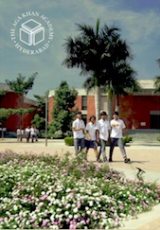
The Aga Khan Academy Hyderabad
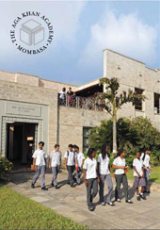
The Aga Khan Academy Mombasa
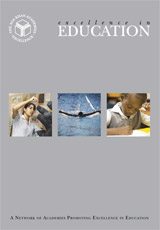
Excellence in Education
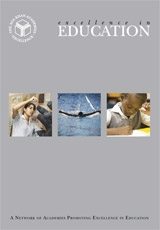
Excellence in Education
Excellence in Education
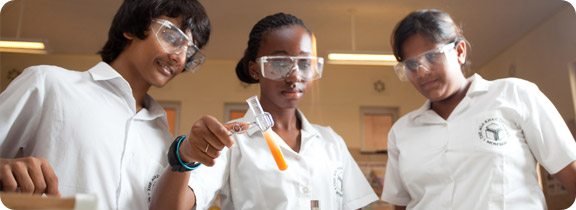
Middle Years Programme
The Senior School of the Aga Khan Academy, Maputo, when it opens will be an IB World School offering the Middle Years Programme (MYP) of the International Baccalaureate (IB).
Skills for Learning and Life
The Middle Years Programme caters for students in years 7 through 11 (ages 11-16). Students in the MYP are immersed in a challenging and enriching educational environment which emphasises the mastery of basic skills, the ability to analyse and think critically, the development of self-discipline and good work habits, the acquisition of computer literacy and progressive skill development.
The MYP helps students develop an awareness of how they learn best, of thought processes and learning strategies. The programme also encourages student reflection and connections with real world issues. It includes a service component designed to encourage students to become aware of community needs, and to learn from their involvement in carefully organised service activities.
The Curriculum
The MYP integrates the study of the major disciplines, including languages, sciences, literature, social sciences, mathematics, arts, technology and physical education. The five AK curricular strands, which are unique to the Aga Khan Academies, are integrated throughout the curriculum.
Students’ final performance in the MYP is assessed by teams of teachers and validated by the IB through a process of careful external monitoring and moderation of student grades. This process ensures parity of standards across some 600 MYP schools worldwide.
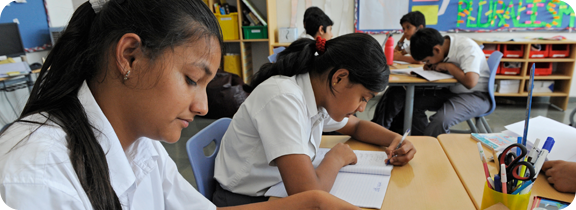
Academic Programme
The academic programme of the Aga Khan Academies is both comprehensive and rigorous. It encompasses formal academics as well as global themes (curriculum strands) that are designed to give students the skills to lead in their fields globally and locally.
The Academies' academic programme is organised according to the framework and principles of the globally renowned International Baccalaureate.
The academic curriculum is designed to ensure that students' theoretical learning is linked to relevant local and international issues through the focus on the Aga Khan Curricular Strands. Through this process, students are able to develop their understanding of the world alongside analytical skills, an ability to learn independently and the desire to make a difference.
The Academies are in the process of putting in place their dual language programme where English and a national language will both be languages of instruction in the Junior School. The aim is for students throughout the school to be at least bilingual.
Additionally, the programme is designed to equip students with the appropriate technical skills, so they have the opportunity to explore how technology is shaping communities.
Through an active, student-centred approach focused on mastery, the academic programme – along with co-curricular programmes – gives students the skills and ability to pursue a competitive, high-quality, post-secondary education. They are able to become thoughtful, curious, ethical and community-oriented leaders who are prepared to take on the challenges of a complex and interdependent world.
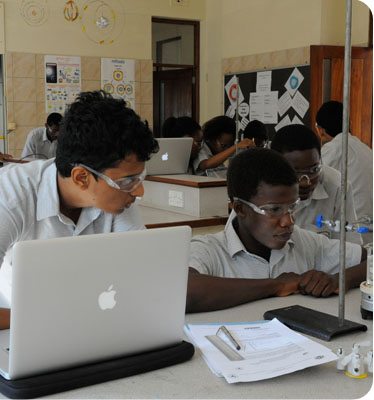
Maike Silver: Cultivating Young Minds to Truly Make a Difference
Ask Maike Silver, Junior School Principal at the Aga Khan Academy in Maputo, Mozambique, what attracted her to teach at the Academy.
“The vision and mission of the Academy,” she states simply. “The vision to inspire young people into becoming future leaders of their countries. To actually have the ethical persuasion to make a difference in the lives of their countrymen.”
Originally from Germany, Maike says it was her father’s voluntary work in her hometown that swayed her into the teaching profession. “I was 12 years old when I started helping my dad coach young swimmers at our local hometown club. Ever since then, I have wanted to work with children and young people.”
Starting her teaching career at a German-American International School in California as an Early Years Specialist, Maike worked for 17 years, before embarking on her international educator journey, first to Cebu, Philippines, and then onto Maputo, Mozambique. She started working at AKA Maputo in 2018.
While she applauds the International Baccalaureate (IB) framework the Academy uses to guide teaching and learning, Maike also values the Aga Khan Curricular Strands of ethics, pluralism, economics for development, cultures, governance, and civil society. These play an important role in her instruction.
“It is these added leadership and stewardship attributes that empower students to care for their communities and that also provide a concentrated focus on local issues,” she states with conviction.
One of Maike’s main goals is to create an environment in which learning can be a positive and transformative experience and make a meaningful impact on students. Aware that young people flourish academically and emotionally in a constructive environment, Maike goes to great lengths to demand discipline for behaviours that maintain reverence and a sense of community and family in which every student feels valued. She feels strong peer relationships are important as are mutual trust and respect between students and between students and teachers.
“In order to be a great teacher several factors need to be in place,” Maike says with authority. “The classroom environment needs to be one of mutual respect where teachers and students connect and together create expectations for behaviour that uphold dignity, and a sense of caring for each other and a passion for learning,” she states solemnly.
In her opinion, teaching is one of the hardest and yet one of the most rewarding professions. “Being a teacher is a difficult occupation as it requires a tremendous amount of energy to keep children engaged in their learning as well as show compassion for all categories of different learners. The job entails diplomacy and resilience when dealing with the different demands from parents, students and administrators.”
Aware of the importance of being prepared before teaching a class, Maike states emphatically that a teacher needs to plan activities and strategies with a strong sense of commitment in order to inspire students.
“The teacher needs to plan engaging activities that have a clear sense of purpose and where the outcome can be assessed. At the same time, the teacher needs to be responsive to the needs of students and must be flexible in their planning. This requires a teacher to be open-minded and reflective,” she notes.
If Maike carries a sense of manifest destiny for her students, she credits the Academy’s IB curriculum of a holistic education. Saying it is critical for educators to train students to think critically and creatively, and to be able to transfer their knowledge to real-life situations, she quotes Ernest LeRoy Boyer, who was a distinguished American educator, who once said “To be truly educated, a student must …make connections across the disciplines, discover ways to integrate subjects and ultimately relate what they learn to life."
Maike has savored every moment of being part of the AKA Maputo family. “I feel it is a tremendous honour and responsibility to be part of creating sustainable systems for a newly-developing Academy. I hope to leave behind a legacy of having been a kind, compassionate and effective leader who played an essential part in providing our young leaders of the future with the highest quality of education that prepares them to enact positive change in the world they inhabit.”
Written by Perviz Walji
Sumeya Taquidir: Becoming a dynamic teacher
Sumeya Nemane Ussene Taquidir believes learning is a continuous process and that the Aga Khan Strands help her, as a teacher, to be dynamic and creative.
Sumeya is a year 6 and 7 Middle Years Programme science teacher, who joined the Aga Khan Academies through the Teacher Preparation Programme, which develops new teachers into International Baccalaureate practitioners. She spent a full academic year at the Aga Khan Academy Mombasa as part of her training through the programme before joining the Aga Khan Academy Maputo.
Born in Maputo, Mozambique, Sumeya graduated with a Bachelor’s of Education in science (Physics and Minor Electronic) from the Pedagogical University, Mozambique. She joined the Academies because of their philosophy of education, which engages students actively in the process of learning, and the environment of continuous professional development that helps teachers develop effective teaching methods.
During her time in Mombasa, Sumeya had the opportunity to learn how to improve her teaching skills. When asked what helped her become a more effective teacher, she said it was, “the opportunity to go to the Academy in Mombasa for training, [where] we received support in various areas in order to improve our methodologies of teaching. [The Academy provided] us the opportunity to participate in workshops, online trainings and use online resources.”
Sumeya feels that the most rewarding aspect of teaching is when she sees students applying the Aga Khan (AK) Strands in different ways. The Aga Khan Strands are cross-curricular areas of learning that help students develop dispositions and knowledge required by future leaders. Sumeya recalls, “My special memory from the Academy in Mombasa was my first day of teaching. I was very nervous mainly because I was being observed. The lesson was good, the students were familiar with the learner profile and the AK Strands, therefore, it was easy to deliver the lesson.”
She believes that with the teacher’s incorporation of the AK Strands and the learner profile into lessons, the students are better able to understand why they should respect other cultures and work together.
Although Sumeya knows that teaching is not an easy job at times, she believes that accepting challenges, communicating with students and their parents, and reflecting on teaching helps achieve positive results.
“I think it is important to create an environment with mutual respect, honesty, good relationships, and communication should be a highest priority…My rule as a teacher is to guide the students to build [their] knowledge and provide a safe environment for learning with collaborative work, respect and sharing ideas among them.”
The Academies are designed as residential schools, with many of the Senior School students living on campus. During her time in Mombasa, Sumeya had the opportunity to interact with students in the Academy’s residences, and believes that residential life complements academics and produces leaders. “They can have a different experience living with others of different cultures. They can build the spirit of leadership and they learn to think for themselves."
Teaching is ultimately a two-way process for Sumeya. She explains that she too learns from the unique environment of the Academies and through interaction with students of diverse backgrounds. “I am conscious that learning is a continuous process; every day we learn something new [which] makes me more curious to learn new things. That is why we have to be creative and dynamic teachers.”
By Inaara Gangji
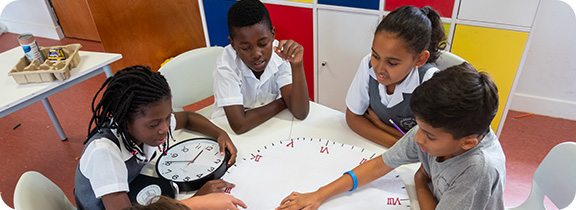
Academic Programme
The Aga Khan Academy Maputo is currently open for Nursery, Junior and Senior School students. We offer an education of an internationally recognised standard of excellence to prepare students to become intellectually curious, global-minded citizens of the world.The Academy programme develops students who are committed to positive change and are able to understand and analyse complex issues of local, national and global significance.
Our curriculum is built on the framework of the International Baccalaureate (IB). The IB is a thorough, multidisciplinary curriculum that fosters:
- intellectual curiosity
- creativity
- leadership development
- social consciousness
- a pluralistic sensibility.
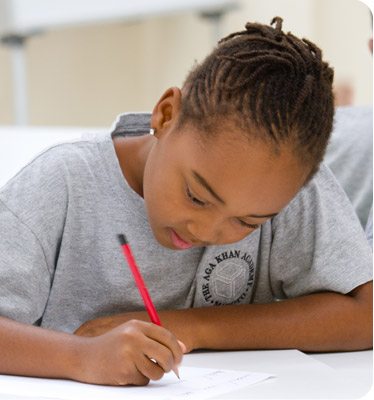
The IB is also known for preparing students for admission to the best universities in their own countries and abroad.
Our focus is on developing students' critical thinking skills and the ability to analyse issues. We also emphasise multicultural understanding and awareness. One of the ways in which we help our students develop skills for ethical leadership is through the Aga Khan Curricular Strands. These are cross-disciplinary areas of study that have been developed for the network of Aga Khan Academies.
Overall educational programme
Our curriculum is complemented by co-curricular, athletic and community service initiatives. The overall educational programme is designed to educate well-rounded, civic-minded individuals. It enhances students’ academic excellence, leadership skills, sense of civic responsibility, understanding of global issues, and analytical and study skills. The programme also reinforces an understanding of local languages, history, cultures and environment.
After completing the full Academy programme, students will be expected to be computer literate and have a thorough understanding of the diverse academic disciplines covered in the IB curriculum. They should have mastered at least two languages, including English. Through the planned international exchange programme, our students will be able to enhance their foreign language learning and appreciation of other cultures.
Our graduates thus will be well prepared for the rigours of higher education and to pursue opportunities in an increasingly interdependent world.
For further information on the programme currently being offered at the Aga Khan Academy Maputo, please visit the Primary Years Programme and Middle Years Programme pages.
